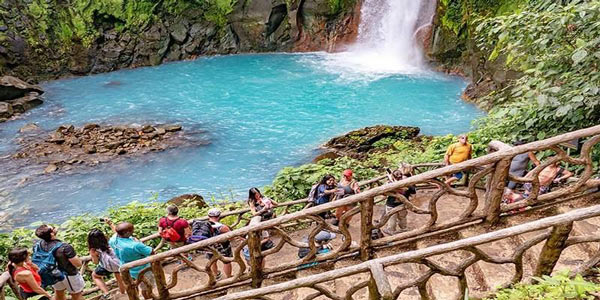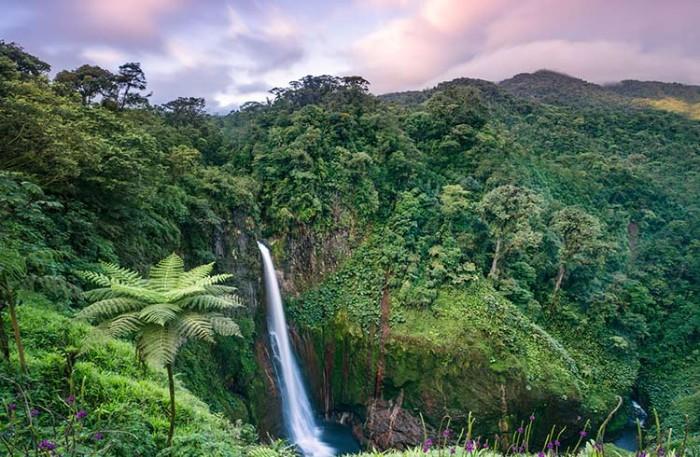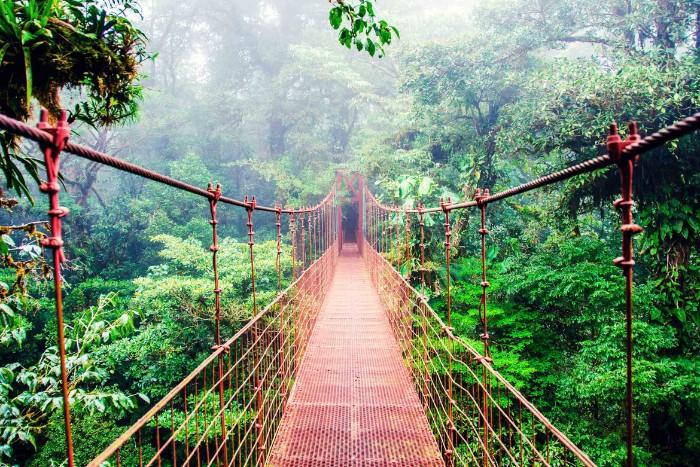
Have you ever dreamed of taking a much-needed vacation to Costa Rica but worried about your safety in an unfamiliar country? You are not alone. Before embarking on any overseas adventure, the most common questions are: Is the destination safe to visit, and is this a good idea?
Fortunately, with its spectacular scenery, friendly people, and security measures that make it one of the safest countries in Latin America, planning a trip to Costa Rica can be one of life's most rewarding experiences!
In this blog post, we will discuss some important factors related to visiting Costa Rica safely, such as crime statistics for different regions and travel tips for staying protected. Prepare yourself for what lies ahead by learning all about traveling responsibly through Costa Rica - read on!
Overview Of Costa Rica's Safety Statistics

Regarding safety, the World Economic Forum has ranked Costa Rica the fourth-safest country in Latin America. He consistently ranks among the safest countries in the region.
According to a 2019 study by The Lancet Journal of Public Health, crime rates have steadily declined over the past two decades.
Costa Rica is a relatively small country with one of Latin America's most effective law enforcement agencies. The Costa Rica National Police force is committed to enforcing the rule of law and providing security for citizens and tourists alike.
In addition to its highly trained police force, Costa Rica has implemented several initiatives to promote public safety. These include a national database of criminals, expanded border security measures, and increased cooperation with international law enforcement agencies.
What To Watch Out For And How To Avoid Common Tourist Traps

When traveling to a foreign country, safety should always be taken seriously. That said, Costa Rica is one of the safest countries in Latin America. Its well-developed infrastructure makes it generally easier for tourists to travel without worrying about safety.
That being said, there are still some common tourist traps that you should be aware of. Petty crime is common in Costa Rica but can easily be avoided by sticking to well-lit, busy areas and leaving expensive jewelry or electronics at home.
It's also important to take precautions when using ATMs, as card skimming has been known to occur in some tourist hotspots. Also, be wary of scams targeting tourists, such as offers for free trips or “deals” that seem too good to be true.
Exercise caution when dealing with strangers and avoid giving out personal information, including bank account details. By exercising common sense and being aware of your surroundings, you can largely avoid potential problems in Costa Rica.
Finally, purchase travel insurance before your trip so that you can be covered in case of any unexpected medical or financial issues.
How To Prepare For Your Trip Mentally and Physically
While Costa Rica has seen its fair share of tourist-related crime, it is still safe. Still, being aware of your surroundings and taking the proper precautions for a safe and enjoyable trip is important.
Before you depart, read up on the culture and customs of Costa Rica to understand what is expected of you as a visitor. Additionally, take the time to research areas that may be more dangerous than others so that you can plan your travels accordingly.
It's also important to ensure your passport and other necessary documents are valid and up-to-date before departure. It's also a good idea to pack some basic medical supplies in case of an emergency. There are decent medical facilities in Costa Rica, but it's best to be prepared for anything that may come up during your travels.
What To Do If You Find Yourself In a Dangerous Situation while in Costa Rica
Although Costa Rica is a generally safe country to visit, taking precautions and being aware of your surroundings is still important. If you find yourself in a dangerous or uncomfortable situation, there are several steps you can take to keep yourself safe.
First, if you sense something is wrong, or the situation feels unsafe, immediately leave the area and go to a safe place. If you find yourself in an emergency, call 911 for help. In addition, it is important to know the local laws and customs to ensure you follow all traveling regulations.
If you are concerned about your safety, there are also several dedicated tourist police units located throughout Costa Rica that work to protect travelers. These units are available 24 hours a day and can be contacted directly or contacting the local police station in the area you are visiting.
Finally, it is wise to always keep your belongings well-protected at all times. Avoid carrying large amounts of cash or valuables, and lock all doors and windows when you leave your room or home.
FAQs
What is the current crime rate in Costa Rica?
Costa Rica boasts one of the lowest crime rates in Latin America, with a low rate of violent crime and property theft. According to the UN's 2020 Global Peace Index, Costa Rica is among the safest travel destinations.[1] Even so, it is important to be aware of your surroundings and take sensible precautions to protect yourself when traveling.
What areas of Costa Rica should I avoid?
Generally speaking, no areas of Costa Rica should be considered completely off-limits. However, avoiding remote and rural areas is advised, especially at night. As with any strange area that you may be unfamiliar with, it's important to stay aware of your surroundings and trust your instincts.
Is there a risk of natural disasters in Costa Rica?
Costa Rica is located along the Pacific Ring of Fire and is prone to earthquakes and volcanic activity. Additionally, the country is subject to tropical storms from June through November and flooding due to heavy rains during the rainy season.
It is best to check with the local authorities and your hotel or hostel for more information before traveling to Costa Rica.
Conclusion
Costa Rica is a safe and welcoming place. The country’s regulations make it one of the safest places to travel, with its low crime rate and basic infrastructure. However, there are still dangers to be aware of—especially those that target unsuspecting tourists. With some common sense and preparation, you can turn your dream into reality and remain safe while traveling in Costa Rica.



